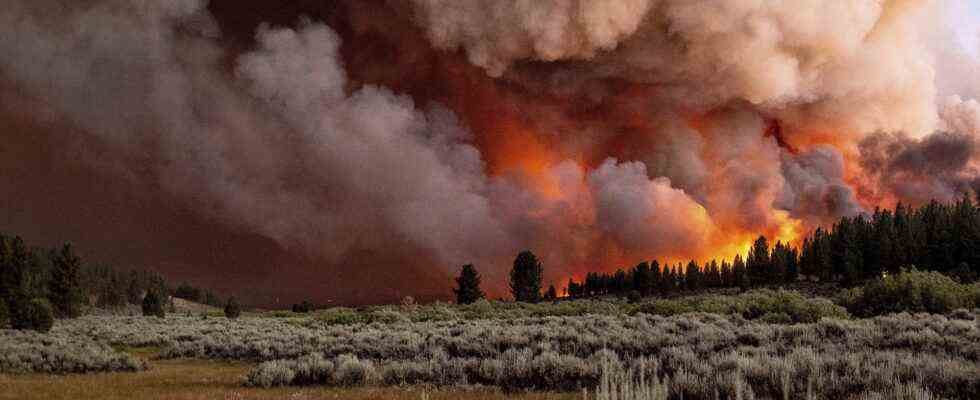Status: 02/23/2022 10:20 a.m
According to a UN report, devastating forest fires such as those recently experienced in Australia and California will increase significantly due to climate change – also in the Arctic, for example. And the world is not well prepared for these catastrophes.
The United Nations has warned of an increase in forest fires. “Even with the most ambitious efforts to reduce greenhouse gas emissions, the planet will see a dramatic increase in the frequency of conditions conducive to extreme fires,” according to a report by the United Nations Environment Program (UNEP). Global warming and changes in land use mean that the phenomenon will worsen in large parts of the world in the coming decades.
According to the report, extreme fires are already causing major damage for which governments are ill-prepared: the resulting smoke is harmful to health, the fires lead to water pollution and the habitats of numerous species are being destroyed. Furthermore, forest fires amplify climate change because they destroy important CO2 stores along with the forests. Almost three billion mammals, reptiles, birds and amphibians were killed or injured in the 2019/20 wildfires in Australia.
Favorable conditions for fire
UNEP compiled the report with its partner, the Norwegian environmental institute GRID-Arendal. The experts involved in the creation explain that extreme forest fires such as 2019/2020 in Australia or 2020 in the Arctic are not a direct result of global warming. But the more frequent and more intense phases of dryness and drought caused by climate change would create particularly favorable conditions for the fires.
More wildfires are already being observed in the western United States, northern Siberia, central India and eastern Australia. And the likelihood of catastrophic wildfires globally could increase by more than 50 percent by the turn of the century. Areas that were once classified as safe from forest fires would then not be immune, such as the Arctic, which “will very likely experience a significant increase in fires”. There is likely to be an accumulation of such events in tropical forests in Indonesia and in the southern Amazon in South America.
UNEP: Governments are reacting wrongly
According to the report, the risk of forest fires cannot be completely avoided. However, humans can take measures to reduce the frequency of such devastating events. Instead, the government’s response to the growing risk of fire is “putting money in the wrong place,” said UNEP chief Inger Andersen.
According to the report, UNEP demands that authorities around the world invest in prevention. Dead plants on the ground and undergrowth around residential areas would have to be removed more consistently. Better landscaping and reducing activities that facilitate fire outbreaks would also help, according to the report.

